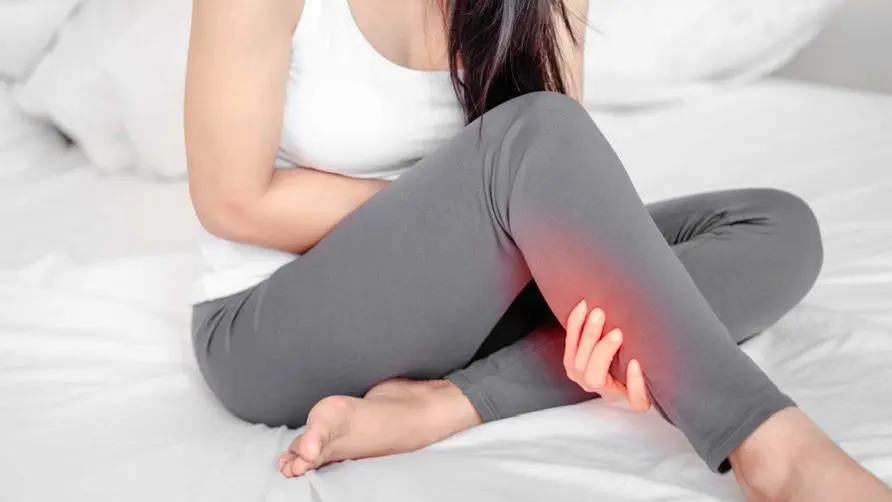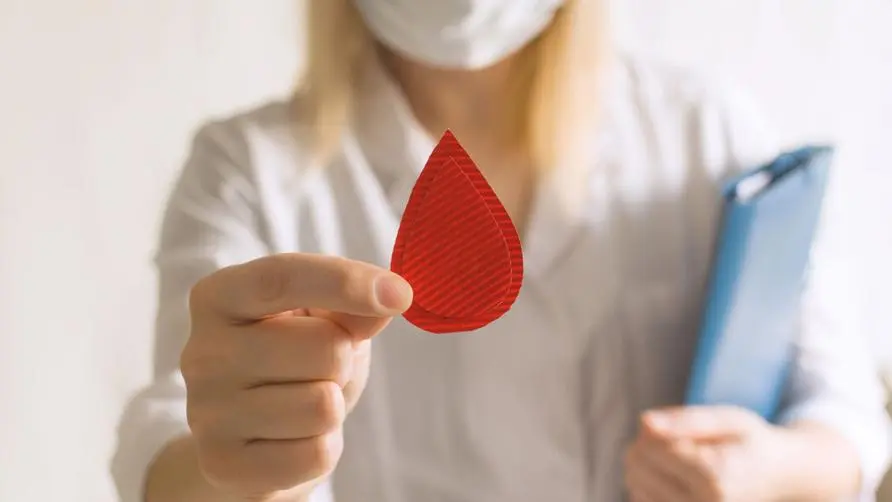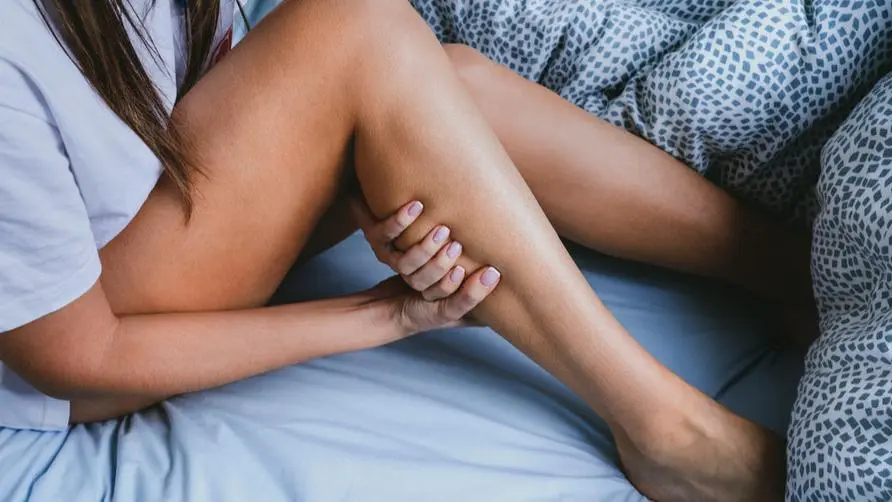Do you always wake up from calf cramps? Is it more likely to occur if you don't exercise or don't drink enough water? Doctor reveals 1 action to relax and save yourself before going to bed

If you don’t drink water at night, will you get cramps in the middle of the night? Doctors reveal 3 main causes of calf cramps
Cramps are “tonic contractions” of muscles that cause spasm and pain. Especially in the middle of the night, “calf cramps” wake up with severe pain. They are a common problem for many people. Dr. Li Yanyu, director of Renyi Boai Rehabilitation Clinic, said in an interview with healthorn that calf cramps are mainly The reasons can be divided into three types. The most common is excessive muscle tightness. For example, after sitting for a long time or standing for a long time, hiking or shopping, because the fascia is in a tight state and is not properly stretched before going to bed, cramps can easily occur. .
The second common reason is not stretching properly after exercise, coupled with insufficient water intake, resulting in poor circulation in the feet. The third reason is related to the lack of electrolytes such as calcium, magnesium, phosphorus, potassium, and sodium. Especially in cold weather, muscle contracture is more likely to cause cramps. In addition, some cramps may be caused by medications, chronic diseases, or endocrine system problems. Medication must be evaluated simultaneously.
Dr. Li Yanyu pointed out that fatigue accumulates in the lower limbs after a whole day of activities. At night, the fascia shortens and it is easy to feel tight. Many people are worried about the need to urinate in the middle of the night, deliberately reduce their water intake before going to bed, and the temperature drops at night, and their calves are not properly kept warm, resulting in muscle tightness. These are all reasons why cramps are particularly likely to occur in the middle of the night. It is recommended to do appropriate stretching exercises before going to bed, and to wear socks to keep warm when the weather is cold to help reduce the occurrence of cramps.
Myofascial adhesion is more likely to occur if you don’t exercise! To prevent cramps, you can practice lunges
Although cramps are related to muscle fatigue, lack of exercise is not conducive to muscle health. Dr. Li Yanyu said that insufficient exercise will increase fascial adhesion, which is especially important for office workers and sedentary people. It is recommended that the average daily exercise amount be more than 4,000 steps, which will help reduce the chance of cramps. In addition, you can practice “lunge exercise” at home. Put your hands on the wall and adopt a forward and backward posture to stretch the back calf. Repeat three times for 30 seconds. This can also help relax the calf and reduce the chance of cramps during sleep.
Dr. Li Yanyu pointed out that when calf cramps occur for the first time, you can pay attention to whether they are related to muscle tightness, lack of stretching, insufficient water intake, and lack of electrolytes. If calf cramps still occur more than two or three times in a row after adjusting your exercise and life, you should seek medical attention. It is recommended to consider medical examination.
A few diseases, such as “endocrine system diseases such as thyroid and adrenal glands”, peripheral nerves such as nerve root compression, and central nervous system problems such as stroke, may also be related to calf cramps and need to be improved through rehabilitation treatment. When a similar situation occurs, you should first seek medical treatment at a rehabilitation department or neurology department to obtain a correct differential diagnosis.
Eat more fruits and vegetables to prevent poor circulation! Cramps combined with sleep problems should seek medical attention as soon as possible
Dr. Li Yanyu reminds that to prevent calf cramps, in addition to paying attention to a balanced diet, you must also remember to consume sufficient water. It is recommended that adults consume 30 c.c. of water per kilogram per day. For example, a person weighing 60 kg should consume about 1,800cc of water per day. If you drink milk and coffee, you can basically replace your water intake. Vegetables and fruits are rich in minerals. It is recommended to eat more fruits and vegetables and drink more water to prevent poor circulation and reduce cramps.
Dr. Li Yanyu said that although electrolytes are related to muscle nerve conduction, it is still not recommended to excessively supplement sports drinks, especially sports drinks contain a certain amount of sugar. Excessive fructose is not helpful in improving cramps. It is recommended to supplement sports drinks after exercise. Refill is limited to one bottle. When you are troubled by cramps and have sleep problems, you can consider going to the rehabilitation department and neurology department for evaluation to clarify the causes of sleep and cramps and find the correct treatment method.
Further reading:





